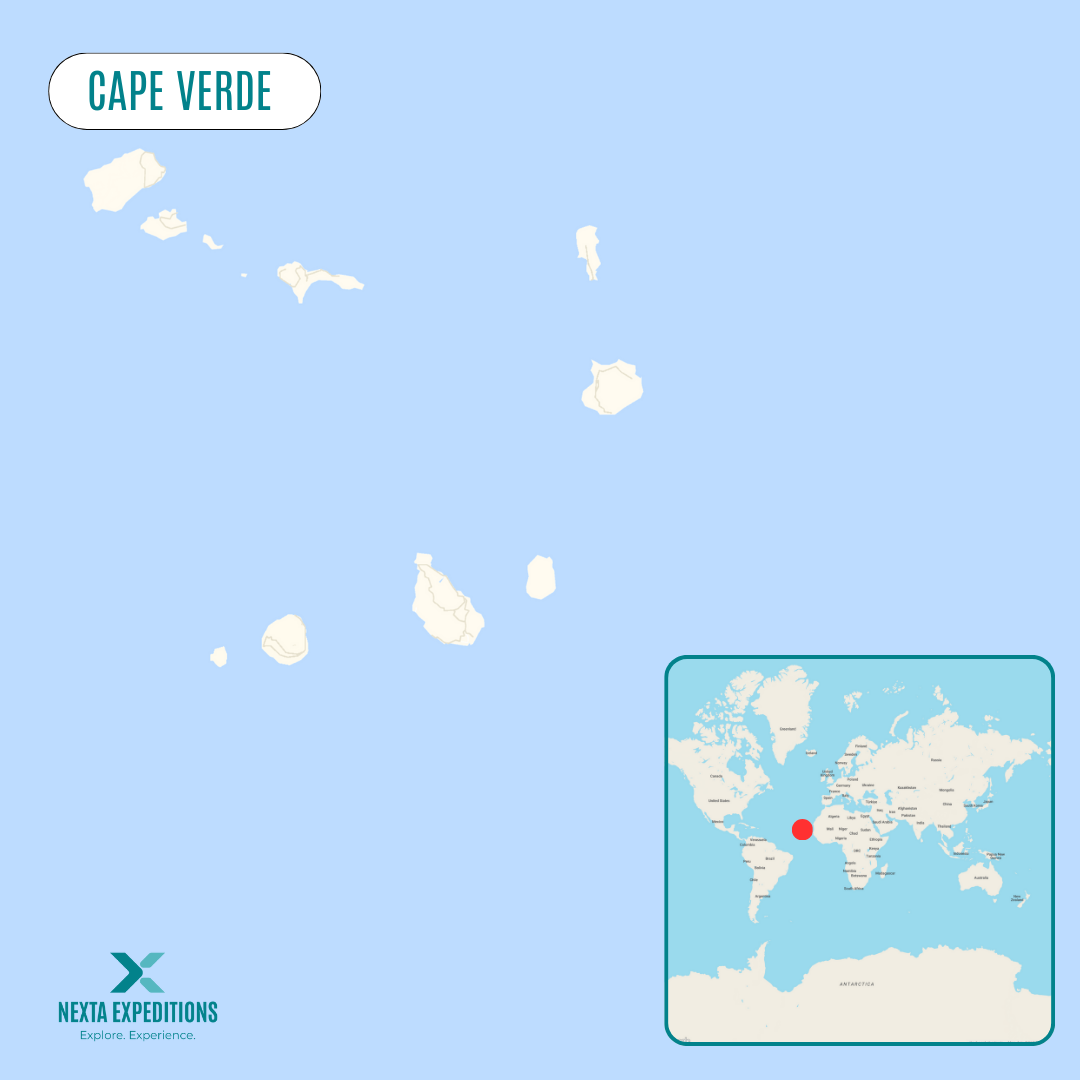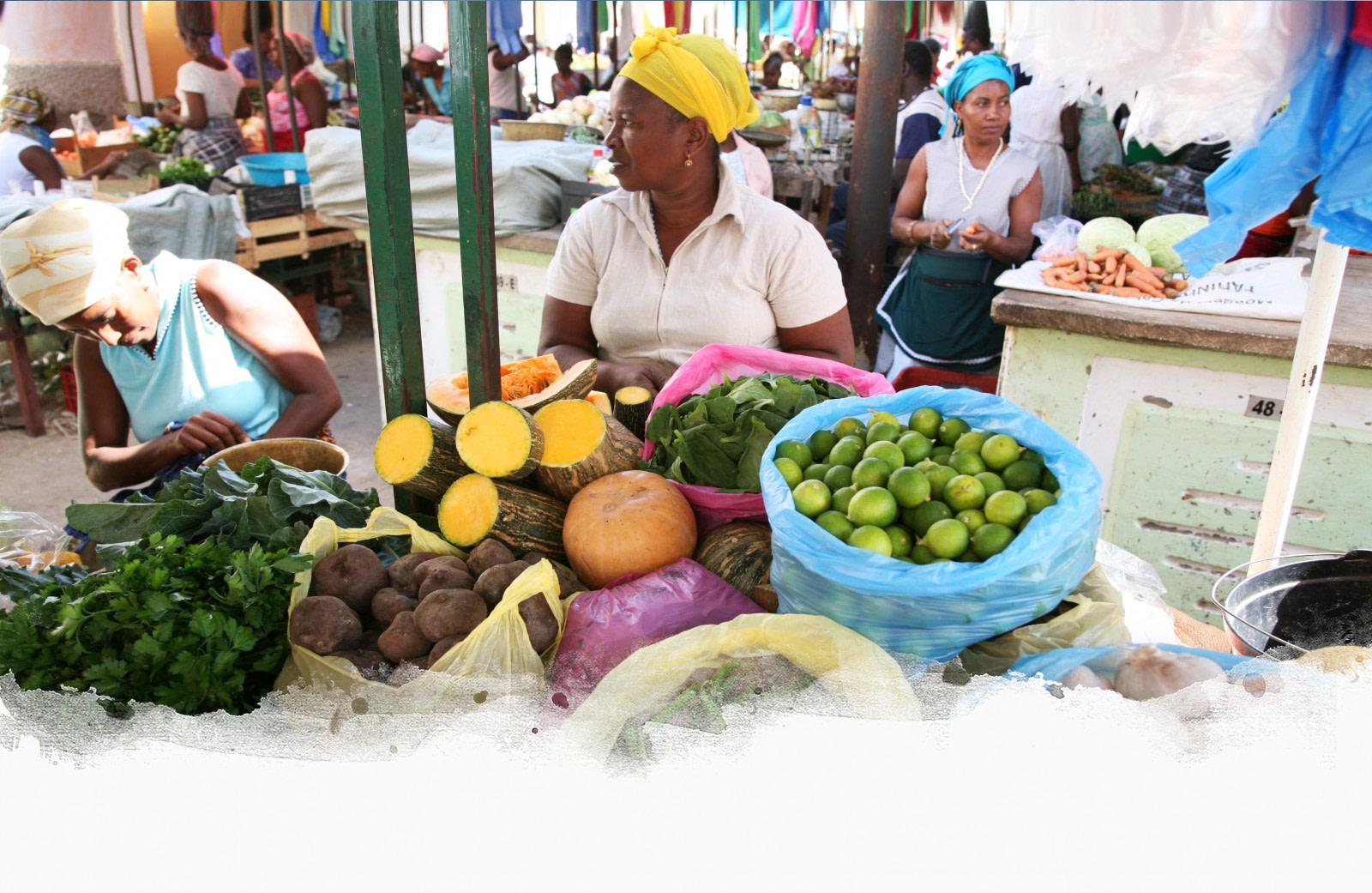Cape Verde, an archipelago located at Latitude 27º North, is a place of stunning diversity and natural beauty. Nestled within the Tropics, this group of islands boasts a landscape that varies dramatically from one island to the next, offering a unique experience for every visitor. Despite being situated within the Tropics, the climate here is milder and less hot than the African mainland, thanks to the surrounding ocean. This creates a perfect blend of warm temperatures and refreshing breezes that make Cape Verde a year-round destination.
The islands of Cape Verde are all distinct in their landscapes and climates. Some are lush and green, while others are rugged and arid. This variety is one of the archipelago's greatest charms, providing endless opportunities for exploration and adventure. For example, the island of Fogo is volcanically the most active of all the islands, making it a must-visit for those fascinated by geology and natural phenomena.
Mount Fogo, standing at an impressive 2,829 meters (9,280 feet) high, is the highest peak in Cape Verde. This majestic volcano is still active, with its last eruption occurring in 1675. Near its peak lies a caldera, inside of which is a small village that offers a unique glimpse into life at the edge of an active volcano. The dramatic landscape of Fogo, with its stark lava fields and fertile valleys, is a hiker's paradise and a photographer's dream.
The climate in Cape Verde is another aspect that makes these islands so appealing. Summer temperatures range from 25º to 29º C (77º to 84ºF), making it warm but not overwhelmingly hot. The islands receive little rainfall, making them dry to very dry, but this arid climate is part of their unique charm. The consistent sunshine and pleasant temperatures make Cape Verde an ideal destination for beach lovers, hikers, and anyone looking to escape colder climates.
While each island in Cape Verde has its own character, the capital city of Praia on the island of Sao Tiago (Santiago) stands out as a cultural and economic hub. Praia is a bustling city with a vibrant atmosphere, offering a mix of modern amenities and historical sites. Visitors can explore the historic Plateau district, with its colonial architecture and lively markets, or relax on one of the beautiful beaches that line the city's coast.
One of the joys of visiting Cape Verde is experiencing the blend of cultures that has shaped the archipelago. Influences from Africa, Portugal, and Brazil are evident in the music, food, and daily life of the islands. The local cuisine is a delightful fusion of flavors, featuring fresh seafood, tropical fruits, and traditional dishes like cachupa, a hearty stew made with beans, corn, and meat or fish. Music is also an integral part of Cape Verdean culture, with genres like morna and coladeira providing a melodic soundtrack to island life.
The natural beauty of Cape Verde extends beyond its beaches and volcanoes. The islands are home to a variety of unique flora and fauna, some of which are found nowhere else on Earth. Birdwatchers will be thrilled by the diverse bird species that inhabit the islands, while marine life enthusiasts can explore the rich underwater world through diving and snorkeling. The clear, warm waters surrounding Cape Verde are teeming with colorful fish, sea turtles, and even the occasional dolphin or whale.
For adventure seekers, Cape Verde offers a wealth of activities. From hiking up the slopes of Mount Fogo to exploring the underwater caves and shipwrecks, there is no shortage of ways to get your adrenaline pumping. The islands also offer excellent conditions for windsurfing, kitesurfing, and sailing, thanks to the consistent trade winds that sweep across the archipelago.








 11 Days / 10 Nights
11 Days / 10 Nights
